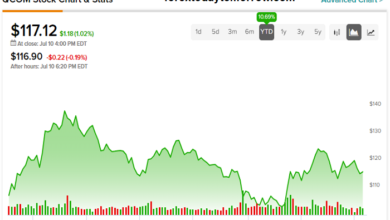The Chief Business Officer: Mastermind Behind the Scenes

The C-suite of a company is filled with powerful players, each with a crucial role in driving success. Among them, the Chief Business Officer (CBO) stands out as a strategic leader who oversees a wide range of vital functions.
The CBO: Orchestrator of Business Operations
The CBO is a high-ranking executive responsible for the smooth operation and growth of a company. They wear many hats, functioning as a bridge between various departments and ensuring their efforts align with the overall business strategy.
Key Responsibilities of a CBO
The specific duties of a CBO may vary depending on the organization, but some core responsibilities include:
Business Development & Strategy: Identifying and pursuing new market opportunities, crafting growth plans, and leading initiatives to achieve them.
Partnership & Alliances: Building and maintaining strategic partnerships that benefit the company and its goals.
Corporate Operations: Overseeing departments like human resources, legal, and facilities management.
Financial Management: Working closely with the CFO to ensure financial health and responsible resource allocation.
Risk Management: Identifying and mitigating potential risks that could affect the business.
Compliance: Ensuring the company adheres to all relevant laws and regulations.
Investor Relations: Building relationships with investors and communicating the company’s performance and future outlook.
The Ideal CBO Profile
A successful CBO possesses a unique blend of skills and experience. Here are some key qualities to look for:
Strong Business Acumen: A deep understanding of various business functions and how they work together.
Strategic Thinking: The ability to analyze market trends, identify opportunities, and develop long-term plans.
Leadership & Communication: Inspiring and motivating teams, fostering collaboration, and clearly communicating goals
Problem-Solving & Negotiation Skills: The ability to navigate complex situations, find solutions, and negotiate effectively.
CBO vs. COO vs. CEO: The Differences
While the CBO role can encompass a broad range of responsibilities, it’s important to differentiate it from similar C-suite positions like COO (Chief Operating Officer) and CEO (Chief Executive Officer).
COO: Focuses on the day-to-day operations and internal efficiency of the business.
CEO: Holds the ultimate leadership position, setting the overall direction and vision for the company.
CBO: Often bridges the gap between COO and CEO, overseeing strategic initiatives, partnerships, and business growth.
The Rise of the CBO
The role of the CBO has become increasingly important in recent years. As companies navigate complex markets and seek new growth opportunities, the CBO’s ability to orchestrate business development and strategic partnerships becomes invaluable.
Conclusion
The Chief Business Officer plays a pivotal role in shaping a company’s success. Their strategic vision, leadership, and ability to connect various functions ensure the organization thrives in a competitive landscape. As the business world continues to evolve, the CBO’s role is likely to become even more crucial in navigating the path to sustainable growth.
FAQ
- What are the career paths that lead to becoming a CBO?
There’s no single path to becoming a CBO. Experience in business development, strategy, or general management can all be strong foundations. An MBA can also be beneficial.
- What is the average salary of a CBO?
CBO salaries can vary significantly depending on factors like experience, industry, and company size.
- Is the CBO a good career choice?
For individuals who thrive in a fast-paced environment, enjoy strategic thinking, and have strong leadership skills, the CBO role can be a rewarding career path.



